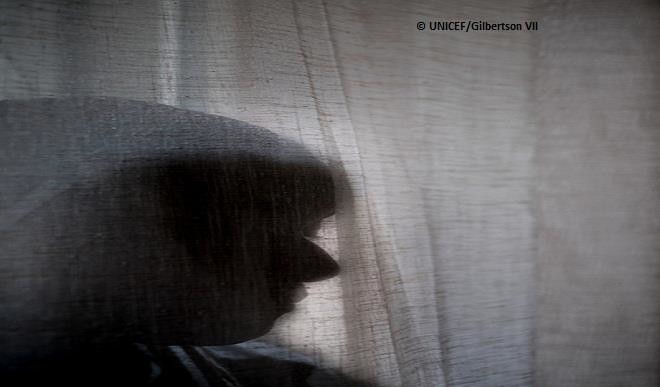“I spent 7 days at sea with not enough water and no food” —Glory, 27
Glory, 27, a migrant from Lagos, Nigeria, has been a prostitute in Palermo since 2013. She works on a strip of road that leads through Parco Della Favorita, a park known for prostitution, on the outskirts of the city. In 2011, Glory was living in Lagos with her family, had saved some money from her […]


Glory, 27, a migrant from Lagos, Nigeria, has been a prostitute in Palermo since 2013.
She works on a strip of road that leads through Parco Della Favorita, a park known for prostitution, on the outskirts of the city.
In 2011, Glory was living in Lagos with her family, had saved some money from her job on a production line bagging water, and hoped to leave the country.
“I want to fight for a bright future, and I want to help my family,” she says. “They couldn’t afford to send me to school, and I wanted to help my younger brothers. I discussed leaving with my mother, but she said no, and I knew if she called me on my journey, it would make me go back. So I blocked her number.
“I didn’t pack a bag. If I did, they would have known I was going to leave, so I just said ‘I’m going to buy something’, and I left,” Glory continued. “I had some money and a phone.”
Glory made it across the desert via Agadez (in Niger) – “No people, no houses. Just sand, ” she said – and arrived in Tripoli (Libya’s capital), where she waited for two weeks in a safe house with 10 girls and boys hoping to make the sea crossing to Italy. Early one morning, the group was taken to a wooden boat.
“I spent seven days at sea with not enough water and no food. There were 300 and something people on the boat, girls, women, boys. I was sleeping on top and that’s when the rescue came. They gave us food and water, medicine and took us to hospital. For that, the Italians are the best.
“August 24, 2011. It’s a day I’ll never forget,” Glory said.
After her rescue, Glory sheltered in a camp in Reggio Calabria for two years, with little to do except wait with other migrants to obtain official asylum status or take Italian classes. “After I got my documents, I moved to Palermo,” she said. “I had heard it was cool, and good. People said it was easy to find a job. I thought maybe I [could] find a ‘Signorita’ job, cleaning houses for someone.”
Unable to find appropriate work, however, Glory began selling herself to motorists travelling through Parco Della Favorita. She fell in love with a man from Ghana and became pregnant. After her son was born, she managed to find a job at a bed and breakfast in a city on the mainland but she ended up back in the park because the work was seasonal. “Even now, when men come to me, I will be [sic] scared. Sometimes bad people come, and you never know.” she said. “If I don’t want that job, I tell him a high price to drive him away.”
Over the years, new girls have come and gone from Parco Della Favorita, some of them minors. Glory says that they don’t talk to each other about their ages or their stories. She does, however, try to help the girls when they first begin working. “The advice I give them is that they should pray. The conditions in Italy makes us have to do this, and we have to be very careful, and always try to find other work.
“We don’t want to come here to suffer,” Glory said “We don’t want to come here and do these things that other people don’t want to do. But this is the only way we can fetch money.
“I pray to God,” she said, “I don’t like this work, and I am always looking for something else.
“None of us are happy doing this work.” Glory added. “If the government can provide a job or support – any sort of work – all these things will stop. It will stop.
“At least it’s better than Africa,” she continued, “My dream is to become a lawyer and maybe here I have the chance.”
Courtesy: UNICEF
